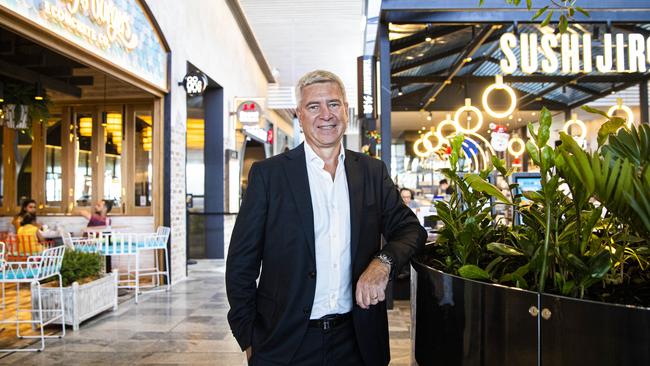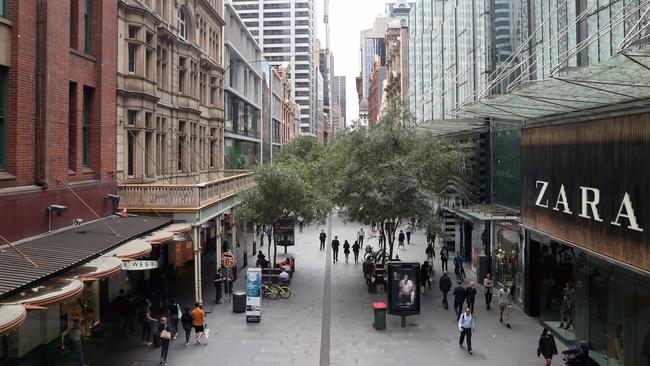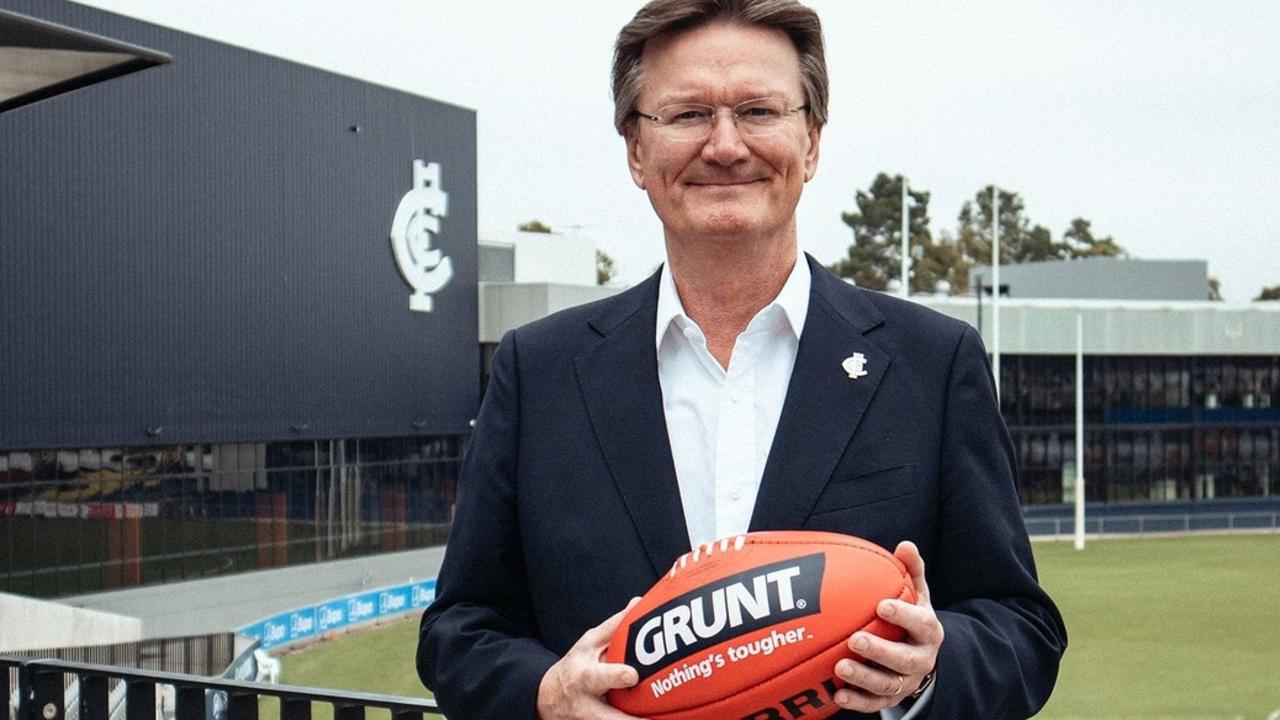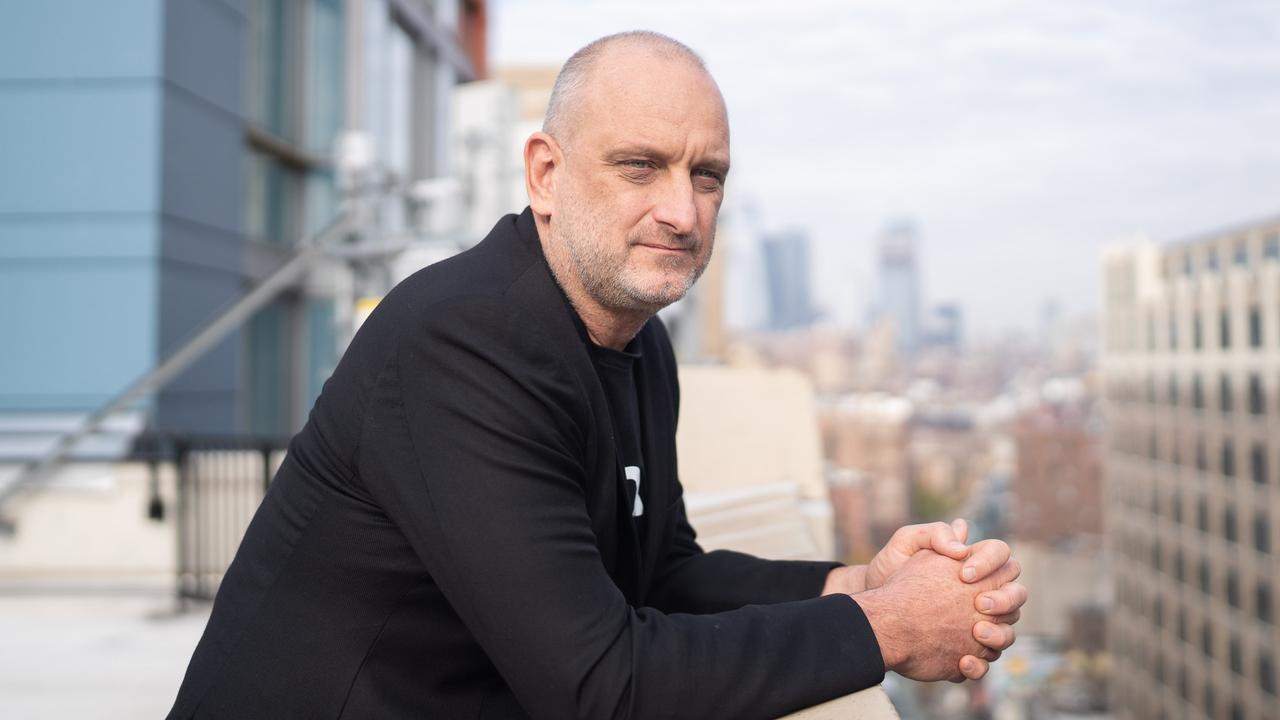Lowy’s man Peter Allen pilots Westfield owner Scentre Group through COVID storm
The former jet fighter pilot and son of a Methodist minister makes no apologies for playing hard ball with billionaire Solomon Lew.

It’s four decades since Peter Allen took to the skies in an F-111 fighter jet during his three-year stint in the Royal Australian Air Force.
Despite the passage of time, the now 59-year-old will never forget the thrill of flying faster than the speed of sound.
“Its very quick! Extremely powerful, extremely fast, and those pilots are amazing in terms of how far ahead you have to think,’’ says the CEO of the $8.5bn Scentre Group, which owns 42 Westfield shopping centres in Australia and New Zealand.
Allen misses his flying days. He still has his pilot’s licence. But he sees parallels between his old jet missions and piloting the Scentre retail behemoth, especially through the COVID storm.
“Being in the air force, it helped me think about when you fly you understand the mission, brief it and if something goes wrong, you are prepared. You complete the mission then debrief. It is interesting in terms of our business doing a debrief. I don’t think enough businesses spend enough time debriefing, saying ‘what can we learn out of this’,” he tells The Weekend Australian.
Debriefing is exactly what Allen has been doing in recent months after Scentre posted a $3.6bn half-year loss last August, a result hit by its decision to lower the value of its assets due to challenges faced by its retail tenants amid the coronavirus outbreak.
One consequence of the debrief strategy seems to be for the normally media-shy Allen, who took over as CEO of Scentre in 2014 when retail magnate Frank Lowy and his family split off Westfield and Scentre was created, to be more willing to present his face to the world in a broader context.
In a wide-ranging interview, you learn that the man who last year famously took on retail billionaire Solomon Lew and was accused of bully boy tactics when he locked retailer Mosaic out of its 129 Westfield stores, is quite religious.
Allen’s late father Ken, who passed away five years ago, was a Methodist minister and the chaplain of Melbourne’s prestigious Haileybury College when his son was a student there.
“That was a challenge because being the reverend’s son is not the easiest thing,’’ Allen says. During his school years the Methodists combined with the Presbyterian and Congregationalist churches under the Uniting Church banner. Allen went to church every Sunday growing up. So what about now?
“Do I go to church regularly? No. But do I go to church? Yes,” he replies, describing his spirituality as partly the product of his father’s profession and partly of “osmosis”.
“Religion sets a guiding light of how we should behave with one another and expectations.”
But decades in Lowy’s executive ranks have also taught Allen how to play tough.
At the height of the COVID crisis Mosaic — which operates brands such as Noni B, Rivers, Millers and Katies — and the Solomon Lew-led Premier pushed for landlords like Scentre to rework traditional fixed rent leases into the style of turnover rents.
Premier refused to pay rent after temporarily closing 900 fashion stores last March. Mosaic also refused to pay, prompting the Allen-led lockout. He describes it as a “tough decision”.
“But to me it was a fair and a firm decision. We don’t negotiate through the press, we have never done that. The way we look at it is a retailer that has the financial capacity and ability to raise other capital and has an obligation to pay rent, that is a legal obligation.
“We did provide a level of support for their (Mosaic’s) business. But that level of support was not considered enough by them. We had a choice of retaining that retailer at a certain level of rent, which we wanted to do, or unfortunately we would end up with a lot of stores back,’’ he says.
Allen stresses he would take the same action again if required.
“We were very fair in terms of giving quite a bit of time to find a solution. Those retailers were not SMEs, they did have financial capacity behind them. If you look at the outcome of what happened, the retailers came back into the centres,’’ he says.
Allen knows Lew personally and met with him last year when the billionaire went public with his grievances.

“I am sure if Solly has an issue he will pick up the phone to me and I will pick up the phone to him,” he says. So was Premier — owner of brands including Just Jeans, Portmans, Peter Alexander and Smiggle — going to be the next to be locked out of its stores?
“I think any retailer was next,’’ Allen replies bluntly.
“We have a mindset that our space has a value. That we are not going to accept a percentage rent type of deal because we are not the retailer. The retailer chooses what they are going to sell, the price point, so we can’t be dependent on how that retailer operates.
“We say the space has a value. And they may agree or disagree. But we have held that out as a key part of how we operate because it is important for our investors.”
In September Scentre surprised investors when it eschewed an equity raising (a path chosen by its rival Vicinity) to issue $4.1bn of 60-year hybrid notes in the US market in two tranches to bolster its COVID-hit balance sheet.
“Our ability to be able to refinance the business would have been shot if people saw that we were going to more variable type rents. Even the 60-year hybrid we did, that gets repriced after five years and was underpinned by the assurance we don’t have any refinancing risk until early 2024. We put ourselves in a very strong position to focus operationally now.”
Despite the doomsday scenarios for a post-COVID world Allen, who is also president of the Shopping Centre Council, doesn’t see the pandemic as a turning point in rental values.
“The concept of growing rents is still a concept our retailers are prepared to accept. Retailers pay rent out of profit, not sales. The retailers see that they need to have a physical store to be able to support their online business.”
In December stockbroker Jeffries upgraded Scentre shares to a “buy” noting that while COVID-19 had accelerated the structural derating of shopping malls, that decline had now largely been priced in.
The broker claimed Scentre shares would outperform over the next 12 months due in part to strong foot traffic and in-store sales, bolstered by increased household savings and lack of overseas travel. Over the past three months they have gained more than 30 per cent.
Allen jokes that he has banned the use of the word “mall” among his staff.
“It is a four-letter word. We call our centres living centres. We are not just retail,’’ he says, noting that over the past seven years the level of what he calls “experiential” offerings at Westfield centres has increased from less than 10 per cent to over 40 per cent.
He says the biggest lesson for Scentre was to focus on the customer more than ever before.
Last year the group launched two new offerings, Westfield Direct and Westfield Plus.
The former allows customers to purchase products online from multiple retailers in one click and collect transaction. The latter offers customers that download an app four hours free parking, the ability to book tables at centre restaurants and other benefits.
A recent major UBS report titled “Is online a threat or opportunity for incumbent retailers? Are physical stores dead?” included a shopper survey that found click and collect (C&C) only currently accounts for around 17 per cent of online orders.
“We see this as an opportunity, given around 62 per cent of customers spend more than planned in a C&C transaction,’’ the broker wrote.
Allen says while many of Westfield’s retailers are using their stores as a collection point, he wants to facilitate transactions in a more “frictionless” way.
UBS also asserted that while online growth was cannibalising store sales, “physical retailers with a unique value proposition will gain share, at the expense of retailers slow to invest”.
“Our view is supported by (a survey showing) 81 per cent of shoppers view stores will always have a place, broadly similar to last year (despite COVID). Furthermore, while around 43 per cent of shoppers believe stores will be less relevant, around 30 per cent still view stores will maintain their relevance,’’ the broker wrote.
Allen says occupancies of Westfield Centres across the nation were over 90 per cent of what they were a year ago.
“The reduction comes down to cinemas and food courts not being fully operational. Our retailers’ sales in a number of categories are higher than they were this time last year.
“The minimum amount of traffic we had across our business (at the height of the pandemic) was about 40 per cent of what it was in 2019. We were going through 2000 litres of hand sanitiser a week across our portfolio. Today our traffic is over 90 per cent and we are going through less than 1000 litres. The things I thought would change as a result of COVID — ie that hand sanitiser would stay, but really it hasn’t — show that level of confidence of consumers coming back to the centres.”
Allen admits being a “little worried” about the looming withdrawal of government stimulus such as JobKeeper, which have supported SMEs through the crisis. But he says that concern is focused on the short term.
“The economy is in a pretty good position,’’ he says.
“We would typically replace 8 per cent of all retailers a year during a lease. To me that unfortunately that is part of life. Yes it is being propped up in terms of the support the government is providing and yes there will be some repercussions of that. But we are starting to see strong demand for retailers to take space in our centres.”
Allen, who is an keen AFL fan and on the board of the Essendon Football Club is deeply connected to the Lowy family.
A former property valuer after abandoning his flying ambitions, Allen was hand-picked by Frank Lowy out of Citibank’s real estate banking operation in Europe in 1996 to join Westfield.
From 1998 to 2004 Allen ran the shopping mall and development giant’s operations in Europe before Lowy asked him to become CFO of the entire group.
Over the decades Allen got to know the “Woman behind Westfield”, Lowy’s beloved wife Shirley, who died in Tel Aviv in December at the age of 86.
“She showed how important family is and to not get carried away with just work. That has left a big impression on me. Shirley was a big part of that. Shirley was not necessarily involved in the business, but she knew she needed to support Frank and the boys to allow them to focus on running the business. She is going to be sadly missed,’’ says Allen, a father of two boys and two girls all aged between 20 and 30.
“We have travelled a lot, my wife has certainly sacrificed a lot in terms of her career in allowing what we have done. Hopefully one of the legacies I have left is making sure we have democratised flexibility across the organisation. So it is not just seen as something the executives and the Lowy family can do. That is something I have definitely learned from the Lowy family.”
In October 2019 Lowy ended all ties with the retail behemoth he created when UBS sold the remaining 4 per cent of Scentre owned by the private Lowy Family Group (LFG).
Yet Allen says he still feels a responsibility to the family.
“I certainly feel a responsibility because I worked with Frank and the boys for quite a period of time,’’ he says.
“But moving forward, I think ‘What can you leave as your legacy?’ As a CEO you have a unique opportunity to create a business that continues to self-improve.”






